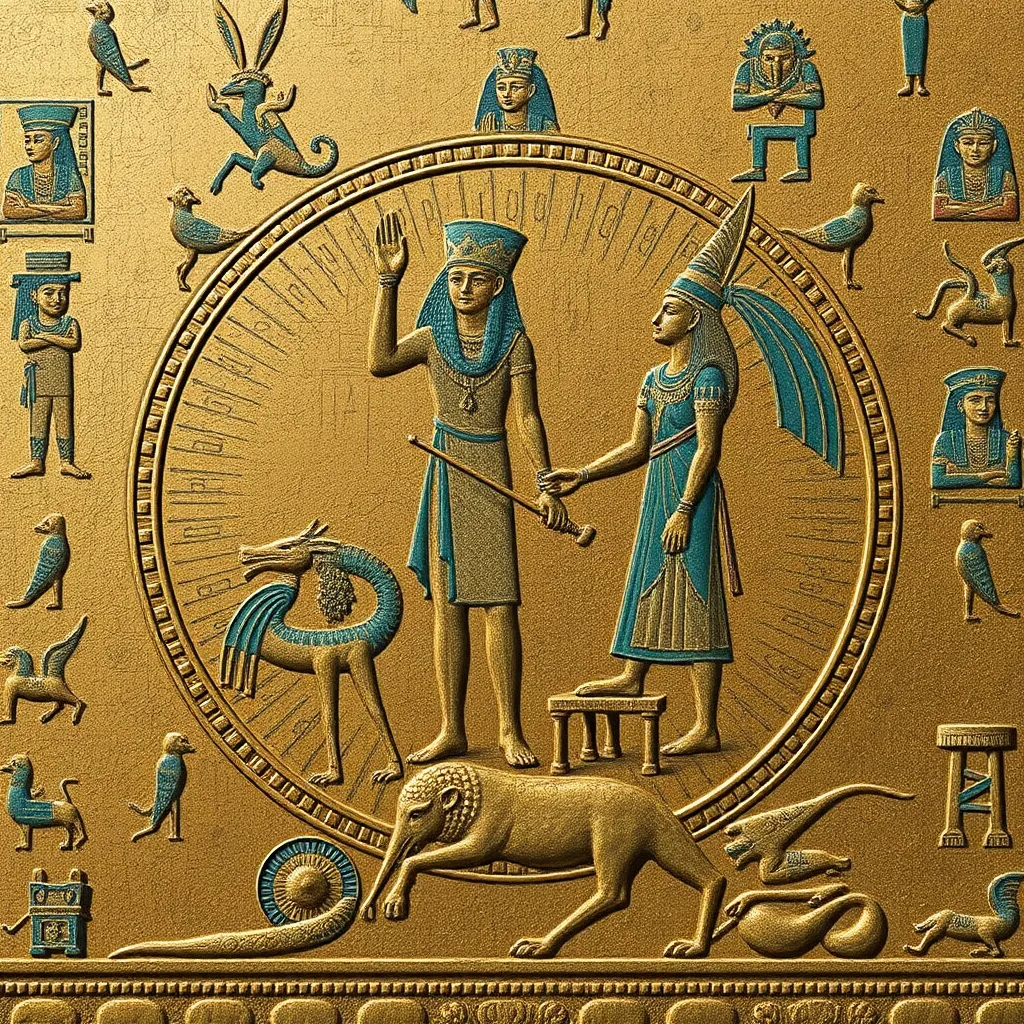The Role of Heka in Egyptian Navigation and Exploration
I. Introduction
Heka, in ancient Egyptian culture, is defined as both a deity and a concept that embodies the magical powers and the divine force believed to influence the world. Its significance extends beyond mere mythology, playing a crucial role in various aspects of daily life, including navigation and exploration.
Navigation and exploration were vital for the ancient Egyptians, facilitating trade, cultural exchange, and military expeditions. These activities required not only practical skills but also spiritual guidance, which is where Heka played an instrumental role.
Understanding Heka’s role provides insight into the complexities of ancient Egyptian society and their worldview, particularly in how they approached the unknown territories and the vastness of the waters that surrounded them.
II. Historical Context of Heka
The origins of Heka can be traced back to the early dynastic periods of Egypt, where it was revered as a powerful force. Heka was not only personified as a god but also represented the principles of magic and the belief in the supernatural ability to influence events.
Significance of Heka in Egyptian mythology is profound; it was believed that Heka existed before the creation of the world and was a vital aspect of the divine order. Historical references to Heka abound in Egyptian texts, such as the Pyramid Texts and the Coffin Texts, where it is often linked with rituals and spells intended to invoke protection and favor from the gods.
III. Heka and the Egyptian Worldview
The relationship between Heka and the natural elements is integral to understanding how the ancient Egyptians viewed their environment. Heka was believed to be a force that could manipulate the elements, making it essential for successful navigation.
- Influencing Natural Forces: Egyptians believed they could harness Heka to calm storms or navigate treacherous waters.
- Guiding Exploration: Heka was seen as a guiding force that could lead explorers safely through uncharted territories.
This belief in Heka as a means of influencing the environment was reflected in their rituals and practices aimed at appeasing the gods and ensuring favorable conditions for exploration.
IV. Heka in Navigation Techniques
Before embarking on voyages, Egyptian navigators performed rituals invoking Heka for protection and guidance. These rituals often included offerings to the gods, prayers, and spells intended to secure a safe journey.
- Rituals: Common practices included the use of amulets inscribed with protective spells and the recitation of incantations.
- Star Mapping: Heka was also crucial in the understanding of celestial navigation. Ancient Egyptians studied the stars and used them as a guide to navigate the Nile and the Mediterranean.
Moreover, Heka played a pivotal role in ensuring safe passage across rivers and seas. Navigators would often carry charms or talismans that represented Heka, believed to shield them from dangers.
V. Case Studies: Notable Egyptian Explorations
One of the most significant expeditions in Egyptian history was the voyages to the Land of Punt, a region rich in resources and trade opportunities.
- The Expeditions to Punt: These voyages, documented in inscriptions and art, highlight the importance of Heka in ensuring the success of such long-distance travel.
- The Nile Voyages: The Nile was a central artery for exploration and trade, with Heka being invoked for safe passage and favorable conditions.
Analysis of artifacts and inscriptions from these expeditions reveals the belief in Heka as a protective force, guiding explorers through the unknown.
VI. Heka and Cultural Exchange
The interactions with neighboring cultures were often facilitated by exploration, where Heka played a role in ensuring successful diplomatic missions and trade routes.
- Influence on Trade Routes: Heka was believed to bless trade, making it prosperous and safe.
- Cultural Integration: Through exploration, Heka fostered exchanges that influenced art, religion, and societal practices.
Heka thus acted as a bridge between cultures, facilitating not only trade but also the sharing of ideas and beliefs.
VII. Modern Interpretations of Heka in Navigation
Today, the study of Heka offers contemporary relevance in understanding ancient navigation practices. Scholars and researchers explore how the ancient Egyptians integrated spiritual beliefs with practical navigation techniques.
- Impact on Modern Perceptions: Heka’s influence can be seen in how we perceive Egyptian maritime history, highlighting the blend of magic and science in navigation.
- Legacy: Heka’s legacy continues in various spiritual practices where the belief in the influence of divine powers remains significant.
VIII. Conclusion
In summary, Heka’s multifaceted role in navigation and exploration underscores its importance in ancient Egyptian society. From influencing natural elements to guiding successful voyages, Heka was an essential aspect of how the Egyptians approached the world around them.
Understanding Heka provides valuable insights into the spiritual and practical dimensions of navigation in ancient Egypt, revealing a society that intertwined the mystical with the empirical.
Further research on Heka and its cultural implications could shed light on more aspects of ancient Egyptian life, including their understanding of the universe and their interactions with the world beyond their borders.




